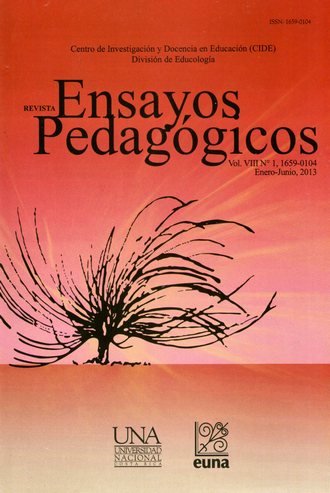Automatization of Education: The Pragmatic Execution of the Neoliberal Project in State Educational Policies
DOI:
https://doi.org/10.15359/rep.8-1.2Keywords:
public policies, education, market, neoliberalism, telematicsAbstract
This essay is a short presentation of the new interests that nation states have defined for their educational policies. In a society increasingly oriented towards reducing the size of the state, the functionality of the educational agenda is defining which new professional profiles are being promoted as well as the social skills that are considered appropriate for the current economic model.
References
Garnier, L. (2006). Conocimiento y educación superior en América Latina: ¿Mercancías incómodas? En V. Muñoz. (comp.), El oro por las cuentas: Miradas a la mercatilización de la educación. Heredia: Centro de Investigación y Docencia en Educación. Editorial Luna Híbirida.
Puiggrós, A. (1996). Educación neoliberal y quiebre educativo. Revista Nueva Sociedad,146, 90-101. Recuperado de http://www.nuso.org/upload/articulos/2549_1.pdf
Ruiz, A. (2001). La Educación Superior en Costa Rica. San José: EUCR.
Torres, R. M. (2006). ¿Mejorar la calidad de la educación básica? Las estrategias del banco mundial. En V. Muñoz. (comp.), El oro por las cuentas: Miradas a la mercatilización de la educación. Heredia: Centro de Investigación y Docencia en Educación. Editorial Luna Híbirida.
Vessuri, H. (1996). Pertinencia de la educación superior latinoamericana a finales del siglo XX. Revista Nueva Sociedad, 146, 102-107. Recuperado de http://www.nuso.org/upload/articulos/2550_1.pdf
Downloads
Published
How to Cite
Issue
Section
License
Ensayos Pedagógicos is subscribed to the Attribution-NonCommertial-NoDerivatives 4.0 International Creative Commons Licence, which allows both authors and readers to freely download, store, copy, and distribute the final approved publisehd version of the manuscript (post-print) as long as this is done without commercial purposes, no derivative works are generated, and the source and author are mentioned. As well, Ensayos Pedagógicos declares that authors will remain the rightful owners of the copyrights of their work in perpetuity.







